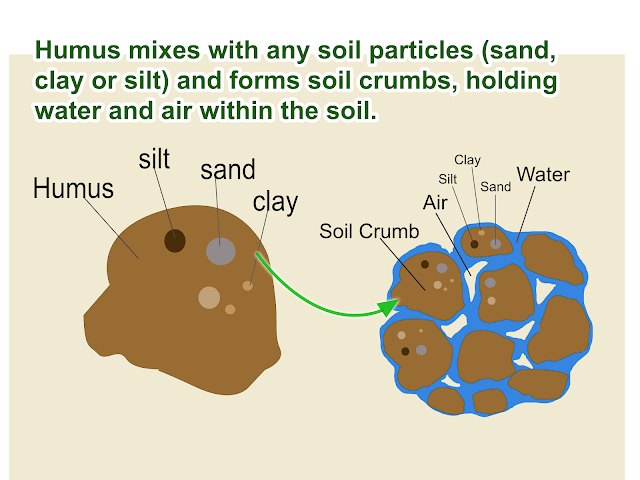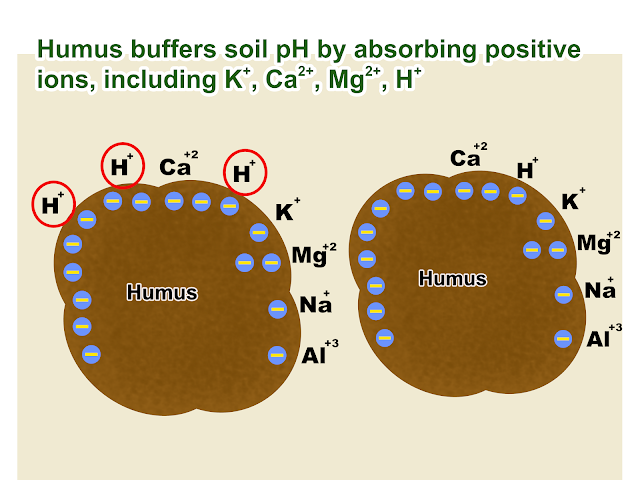What’s the difference between compost and humus?
Humus is dark, moist and spongy-like. Humus is the end-product of compost. Bacteria decompose the plant and animals bodies until they can’t decompose anymore, and the leftover is called humus.
Humus is long-chain carbon molecules. Humus is what makes compost so valuable. Whereas compost is just the stack where we put food scraps together. At any phrase, marketing guys call it "Compost" anyway.
 |
| Humus is exactly the leftover of plant and animals dead bodies after bacteria decompose them |
It's the "humus" that makes compost so valuable to the soil because :
1. Humus feeds and attracts earthworms
Earthworms are key to building the soil. Humus contains nitrogen and billions of bacteria. Bacteria are made of nitrogen,too. Earthworms swallow humus and discharge the NH4+. Plants will take up NH4+ as nutrients.
Earthworms living in the soil move and create tunnels in the soil, which loose up the soil and let more air in.
 |
| Earthworm is natural soil builder since they create tunnels and release nitrogen from humus |
2. Humus forms the soil crumb structure
No matter which type of soil you have, when you add humus to the soil, sand, silt or clay, they will form soil crumbs with humus. The soil crumbs create more pores between each other. These pores retain water with capillary force.
 |
| Humus forms soil crumb with any soil particles, creating more pores to retain water with capillary force. |
3. Humus buffers soil pH
The wrong soil pH will cause some nutrients fixed in the soil and not available to plants, mostly the potassium. Humus is negatively charged so it holds up H+ while they are too much in the soil.
 |
| Humus holds positively charged ions in the soil, including nutrients and hydrogen |
4. Humus hold up other positively charged ions like Mg2+, Na+, K+ in the soil
They are mostly micronutrients that plants need. Humus holds them in the soil, so they don’t get leached away.
5. Humus is generally decreasing in Europe, causing the land not arable
Only bacteria can make humus. When farmers use chemical fertilizer and pesticide, they are killing the bacteria in the soil because of too much ions in the soil, so the water will go out of bacteria from their membrane just to balance it.
Humus is key to soil nutrients cycling, without humus in the soil, land is losing its fertility. So we end up using more chemical fertilizer just to feed the crops.
 |
| Humus in the soil is generally decreasing in Europe, we may end up using more water and fertilizer in the future |
Without the bacteria in the soil, we will end up using more pesticides, too. because there will be more pathogens to cause plants illness and the bacteria is one of the natural enemies to pathogens.
Humus builds the soil structure, giving the soil more pores holding water, without humus we need to water more on crops, too.
6. Does your compost give you humus?
Humus is the reason why we compost. We want to get the humus as the end product of compost. Compost is the stack where we put food wastes, garden trimmings together, hoping that they can turn into humus one day. Marketing guys said you can get “compost” by putting food wastes together and by the way drying and grinding them. Well, they are killing bacteria but they are not lying.
 |
| Did you get humus from your compost? or you get Dry Carbon or Rotten Food? |





0 Comments